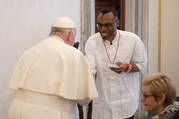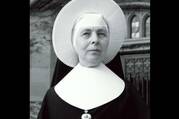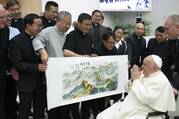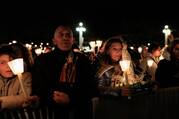Loading...
Click here if you don’t see subscription options
Click here if you don’t see subscription options

Politics & SocietyNews
“Authentic palliative care is radically different from euthanasia, which is never a source of hope or genuine concern for the sick and dying,” the pope said in a message to the first International Interfaith Symposium on Palliative Care in Toronto.

FaithFaith and Reason
Father Agbonkhianmeghe Orobator is the first dean of the Jesuit School of Theology in Berkeley born outside of the United States.

FaithDispatches
The pope’s response surprised some who believed he was open to the possibility of ordaining women as deacons.

Arts & CultureCatholic Book Club
A poet and a woman religious whose work often appeared in America, M. Madeleva Wolff, C.S.C., is known for much more than her verse. She was also a pioneer in Catholic education in the United States.

FaithVatican Dispatch
An important international conference in Rome on May 21 marks the 100th anniversary of the first Plenary Council of the Catholic Church in China. Here’s what you need to know.

Politics & SocietySpeeches
During an audience with a delegation from Loyola University Chicago at the Vatican on May 20, Pope Francis said, “Education happens on three levels: the head, the heart and the hands.”

FaithNews
The proclamation comes just two weeks after the Jesuit priest who founded Homeboy Industries received the Presidential Medal of Freedom from President Joe Biden.

Politics & SocietyDispatches
Argentina has been in a state of economic upheaval for years with two constants—a continuous increase in poverty and corresponding efforts by the Catholic Church to respond to that need.

FaithNews
In an interview with Norah O'Donnell April 24 on “60 Minutes,” Pope Francis clarified that “Fiducia Supplicans” didn’t allow blessings of “the union” but of “each person.”

FaithVatican Dispatch
Today’s text from the Dicastery for the Doctrine of the Faith makes clear that henceforth, as a rule, the Holy See will not declare any alleged spiritual phenomenon, such as an apparition, as authentic‚ that is, “of divine origin.”
